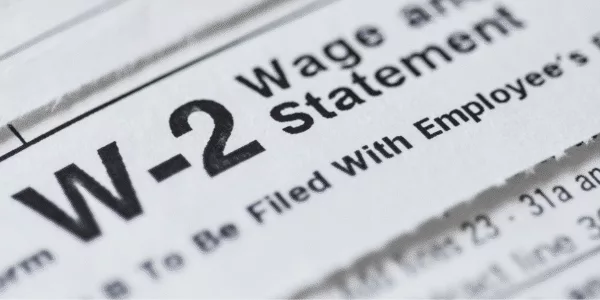Professionals That Choose to Offer Services Using the GoTu Platform Are Properly Treated as 1099 Independent Contractors
What is GoTu and how does it differ from a dental office or temp agency?
GoTu is a dental talent marketplace where dental offices and licensed professionals connect for short-term, flexible work on their own terms through our platform.
Our platform provides dental offices with verified professionals, manages temp schedules, and eliminates the need for costly temp agencies by advertising open shifts directly to dental professionals. GoTu requires all professionals working as independent contractors to provide their own Occupational Accident Insurance (“OAI”) and Malpractice Insurance or purchase it through the platform. Professionals must also provide their credentials before being allowed to access the platform. Once they do, they gain access to opportunities posted by dental offices in their area. Professionals have complete control over when, where, and how they work. They choose the shifts, locations, and rates that fit their needs, or they can choose not to work at all.
GoTu is not a staffing agency, does not employ dental professionals, and does not provide dental services. We are not a dental office, and we are not affiliated with any professional or practice on our platform.
GoTu powers a two-sided marketplace that gives professionals and offices a seamless way to connect, stay compliant, and ensure payments are handled reliably.
How can GoTu Dental Professionals Work as Independent Contractors?
“1099” isn’t a job title; it’s a tax form. It’s a type of IRS form that dental professionals receive when they work as independent contractors on the GoTu platform.
Classifying someone as an independent contractor versus an employee isn’t always straightforward. Every state has its own rules, and those rules can be confusing, inconsistent, and ever-changing. Things get even trickier when you throw in a platform like GoTu that helps facilitate flexible, short-term work across thousands of dental offices and dental professionals.
In states where GoTu operates under an independent contractor model, dental professionals use the platform as independent contractors, not employees. Here’s what that means in practice:
- Mutual agreement: GoTu and the professional agree in writing that this is an independent contractor relationship.
- Flexible, short-term work: The relationship is temporary and shift-based, not permanent or ongoing.
- Full autonomy: Professionals decide when and how often they want to work. GoTu does not require specific hours or guarantee a minimum number of shifts.
- Rate negotiation: Professionals can negotiate their pay rate with the dental office before accepting a shift.
- No authority or obligations: Professionals don’t represent or speak on behalf of GoTu and are not bound to us in any formal employment capacity.
- No exclusivity: Professionals are free to use other platforms, work for competitors, or run their businesses.
- No uniforms or equipment requirements: Professionals can choose what to wear and use their tools.
- No training or supervision: GoTu doesn’t require any specific training or dictate how services should be performed.
- Termination rights: Either party can end the relationship with written notice, or if the agreement is breached.
- No benefits or tax withholding: GoTu doesn’t provide health or other insurance. Professionals are responsible for their taxes.
- Direct payment facilitation: Professionals are paid for services performed for dental offices. GoTu simply facilitates that payment between the two parties.
Common Myths*
| Myth | Reality |
| I’ll be taxed twice if I use a 1099 | All wage income is taxed by the federal government. Individuals who are self-employed receive a 1099 and are responsible for paying all of their own taxes on their earnings. Employees receive a W-2 tax form from their employer identifying the taxes already paid through payroll deductions so that the employee can then file his or her return. An individual should not receive a 1099 and a W-2 for the same earnings. |
| I could lose my license if I use a platform that sends 1099s | State boards only address licensing and not tax forms. A 1099 is an IRS form and is entirely separate from licensing. |
| Having both a 1099 and a W-2 will get me audited | Individuals may receive both a 1099 and a W-2 in the same year. People that work multiple jobs, have side gigs, or offer services independently could earn income as employees and independent contractors in the same tax year. As long as income is accurately reported on your tax return, this situation alone isn’t typically a cause for concern. |
| Dental professionals are supervised workers, so that means they’re employees | Whether someone is an employee or an independent contractor depends on several factors, and different federal and state agencies use their own tests to determine classification. Just because a dental professional works under the general direction of a dentist does not automatically make them an employee. Factors like control over their schedule, the ability to accept or decline work, and their level of skill and independence often support contractor status. GoTu regularly reviews legal guidance and works with experts to ensure its model follows current state and federal laws and practices. |
| I’ll need a 1099 for every office I work with | As an independent contractor using the GoTu platform, you’ll receive a single 1099 form for all hours worked through GoTu during the year. |
* GoTu is not a law or accounting firm, so please do not consider this marketing circular as tax, accounting, or legal advice. You should consult with your own professional regarding your unique circumstances.
What About FICA Taxes
As independent contractors, dental professionals are responsible for both employer and employee portions of FICA taxes, which cover Social Security and Medicare. This is typically referred to as self-employment tax, and is calculated as part of your yearly tax return.
Unlike W-2 employees, independent contractors don’t have taxes withheld from their pay. The good news is that as an independent contractor, you may be able to deduct a wide range of business expenses to help reduce your taxable income. We recommend that you keep track of your expenses throughout the year and consult with a tax professional. To make things even easier, we’ve partnered with H&R Block to help independent contractors manage taxes and stay financially confident.
All in all, GoTu believes flexible work should come with real support. By operating under this model, we empower dental professionals to take control of their careers by choosing when, where, and how they want to work.
In an industry searching for better solutions, GoTu stands out for its freedom, simplicity, and the positive impact it creates for both professionals and dental offices. The result is a stronger, more empowered dental community built around choice, opportunity, and support.







